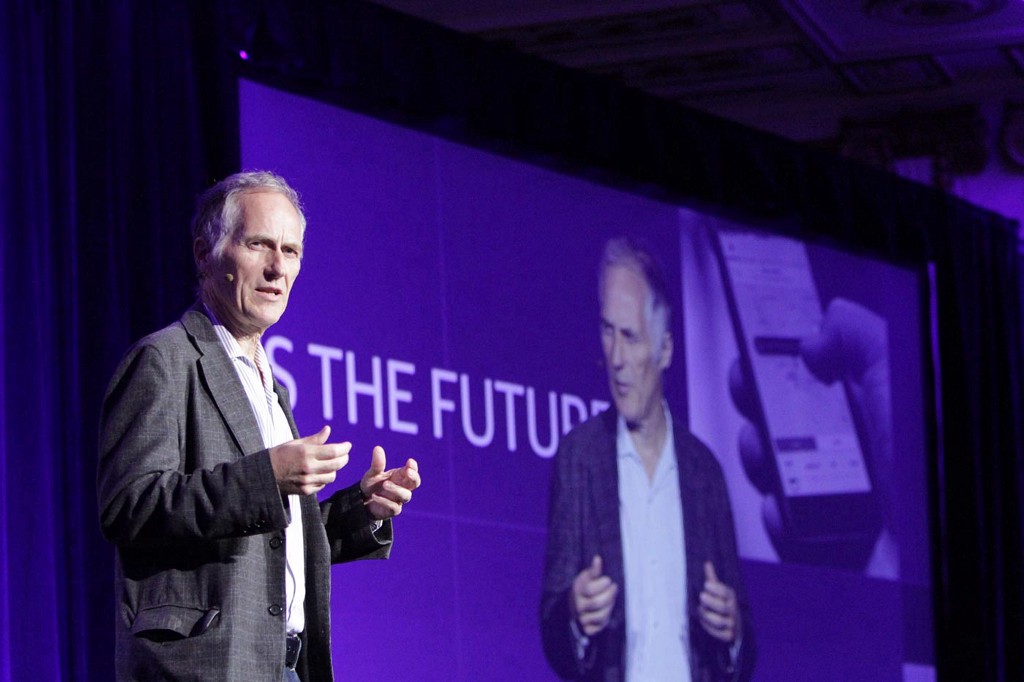Tim O’Reilly once again brings us news from the future in his new book, “WTF: What’s the Future and Why It’s Up to Us.”
This time the entrepreneur and tech seer’s dispatches go beyond Silicon Valley, beyond technology and even beyond the good jobs and shared economy agenda O’Reilly has championed in his WTF conferences over the last few years. O’Reilly takes on the current logic of capital markets themselves.
https://medium.com/media/a3ffa46b9b4f002d95e927c8260030de/href
“There is a master algorithm that rules our society and, with apologies to Pedro Domingos, it is not some powerful new approach to machine learning,” O’Reilly writes. “It is a rule that was encoded into modern business decades ago and has largely gone unchallenged since.”
O’Reilly calls that master algorithm by a variety of names: shareholder capitalism, profit-maximization, short-term thinking. The point is that “the market,” with quote marks, is itself an optimization engine crunching away on the algorithm with which it has been programmed.

In the latest Returns on Investment podcast, I spoke with O’Reilly about how to tweak that algorithm to optimize for a more just, sustainable — and prosperous — future. (Pedro Domingos, by the way, is an AI expert and professor at the University of Washington, and author of “The Master Algorithm: How the Quest for the Ultimate Learning Machine Will Remake Our World.”)
“We need to understand how financial markets (often colloquially, and inaccurately, referred to simply as ‘Wall Street’) have become a machine that its creators no longer fully understand,” he writes, “and how the goals and operation of that machine have become radically disconnected from the market of real goods and services that it was originally created to support.”
Yes, unlike Silicon Valley’s nouveau libertarians, O’Reilly sees a robust role for government as a source of both carrots and sticks in getting robust marketplaces off the ground and keeping them open. Google started with Larry Page and Sergey Brin’s National Science Foundation-funded research project at Stanford. Talk about catalytic capital (and follow-on funding): “The market value of Google is greater than the entire amount of taxpayer dollars spent on the NSF since it was first founded in 1952,” O’Reilly writes.
And it’s not artificial intelligence that is replacing workers, he argues. It’s corporate CEOs who are themselves enslaved by the master algorithm. “What are humans in that system but a cost to be eliminated?” he warns.
“The root problem is that the financial market, once a handmaiden to the human exchanges of goods and services has become the master,” he writes. “Even worse, it is the master of all the other collective intelligences. Google, Facebook, Amazon, Twitter, Uber, Airbnb and all the unicorn companies shaping the future are in thrall as much as any of us.”
The way out often appears impossible, until it becomes common sense. History may not repeat itself, but it often rhymes, O’Reilly says.
“Understanding the future requires discarding the way you think about the present, giving up ideas that seem natural and even inevitable,” O’Reilly writes. That includes, he says “the one master algorithm we so take for granted that it has become invisible to us.”
https://medium.com/media/a3ffa46b9b4f002d95e927c8260030de/href
Special thanks to our podcast producer, Isaac Silk. You can subscribe to all the Returns on Investment podcasts at iTunes, Stitcher or wherever you listen.











